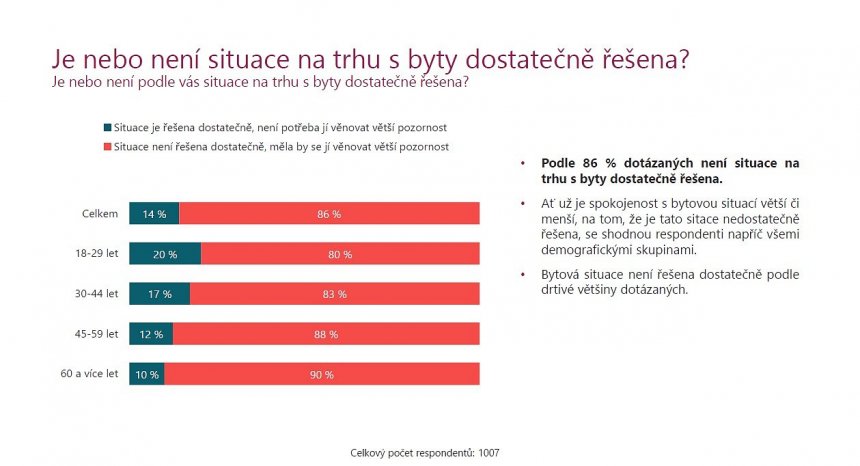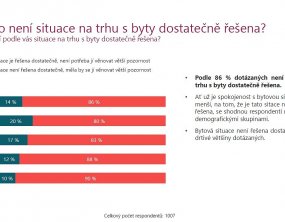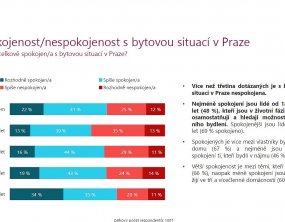At the end of March and beginning of April, the STEM/MARK agency performed a public survey among the inhabitants of Prague 11 relating to the resolution of the housing situation in Prague 11 and throughout Prague in general. A representative sample of 1007 people was surveyed with respect to the public perception on the current situation and the possibilities of housing in Prague, on the possibilities and prices of flats and the potential for construction in the area of Prague 11. As ensues from the results of the research, the housing situation in Prague is currently highly unsatisfactory. The originator of the survey was the PASSERINVEST Group, which wants to act in this area as a long-term partner in the development of the city, with the aim of transforming an unpleasant environment into a pleasant and user-friendly location, including a large public park.
As part of the survey from the STEM/MARK agency, adult respondents from all age categories answered questions related to the issue of housing in Prague as a whole and specifically the area of Prague 11. Their assessment of the accessibility of housing, their satisfaction or, on the contrary, dissatisfaction with the situation and the reasons for it were determined. More than a third of those surveyed is absolutely unsatisfied with the current housing situation in Prague and, in fact, according to 86% of those surveyed, the situation on the housing market in Prague is not sufficiently resolved. The reason for the dissatisfaction is primarily the insufficient supply of flats on the market, the high purchase price of the flats (83% of those surveyed) or of rent (67% of those surveyed).
The locality of Prague 11 was viewed favourably by the respondents. The absolute majority of the respondents is satisfied with transportation services (95%) and with the quality and availability of services (92%). On the other hand, 36% of the respondents see a lack of job opportunities in Prague 11. Plus, only a bit more than a quarter of those surveyed consider the number of existing flats in the locality of Prague 11 to be sufficient. The respondents also agreed that the high prices are influenced by insufficient construction in Prague 11 (56%) and the overall increase in prices for materials and construction work (49%).
As part of the survey, STEM/MARK also asked about potential solutions to the current housing situation. In particular, the construction of “starter” flats for young families received great support among the respondents (94%), while a majority of those surveyed think that a simplification and shortening of construction proceedings and construction on brownfields (both with an identical 81%) would help. Almost three-quarters of the respondents also viewed favourably the support of construction of both rental (74%) and new (70%) flats. Opinions supporting cooperative housing and the construction of municipal flats also appeared among those surveyed. A total of 91% of the respondents in the STEM/MARK public opinion survey across all demographic groups agree with the planned construction in Prague according to the city of short distances concept.
Gabriela Šamanová, STEM/MARK, E-mail: samanova@stemmark.cz


